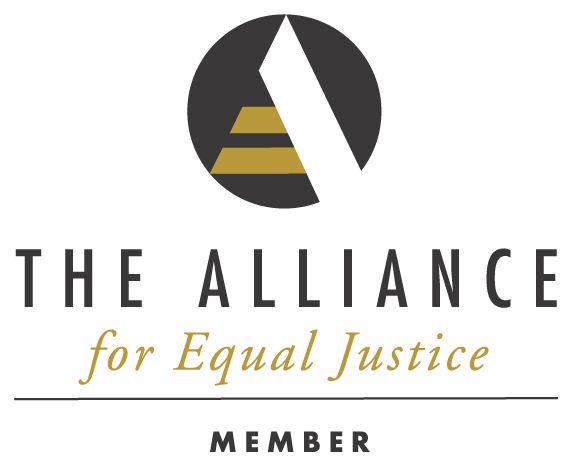“No-action alternative”; as the preferred alternative in the Tongass National Forest, Alaska Roadless Rulemaking process.
May 27, 2020
Sonny Perdue, Secretary of Agriculture
U.S. Department of Agriculture
1400 Independence Avenue
SW Washington, DC 20250
Dear Honorable Secretary Perdue,
The Affiliated Tribes of Northwest Indians (ATNI) requests the U.S. Forest Service to fully protect
designated roadless areas in the Tongass National Forest. ATNI stands in support and solidarity
with the Organized Village of Kake and several other Southeast Alaska Tribes, which have made it
very clear that any rule that weakens or eliminates Roadless Rule protections within Tribal
traditional territory of the Tongass National Forest will substantially affect Southeast Tribes’
inherent Tribal rights to traditional and customary uses of the land.
During ATNI’s Annual Convention on October 10, 2019, nearly 50 member Tribes from SE Alaska,
Washington, Oregon, Idaho, Montana, and Northern California passed resolution #19-58, which
supported the ‘no-action alternative’ as the preferred alternative in the Tongass National
Forest, Alaska Roadless Rulemaking process.
On October 15, 2019, the United States Forest Service (USFS) released the Draft Tongass Rule
that proposed granting a complete exemption to the 2001 National Roadless Conservation Rule.
The USFS is advancing the Tongass Roadless final rule review even though a state of national
emergency has been declared in response to the COVID-19 pandemic. The Organized Village of
Kake and other Southeast Alaska Tribes have raised serious concerns about the USFS closing a
cooperator review input period for the draft final rule one week after the national emergency was
declared. This is an unconscionable act without any consideration of the good faith efforts of
Tribes trying to protect their customary and traditional lands.
President Trump issued an executive order declaring a state of national emergency on March 13,
2020, in response to the COVID-19 outbreak in the United States. Since then, numerous U.S.
governmental organizations, including the U.S. Supreme Court and the Internal Revenue Service,
have announced extensions of normal filing deadlines because of ongoing public health concerns
relating to COVID-19. Additionally, Alaska Governor Dunleavy has instituted numerous restrictions
limiting the public’s ability to gather, work, and travel. Southeast Tribal communities are exhausting
all available resources to prepare and address this health crisis in their communities. All of these
restrictions make it extremely challenging, if not impossible, to engage in federal rulemaking.
Around March 7, 2020, the Forest Service sent Southeast Alaska Tribal cooperators a pre-public
draft, final environmental impact statement, and requested feedback by March 21, 2020. The
Forest Service did not suspend this process or extend this deadline even though a national
pandemic emergency had been declared in the interim.
Southeast Tribes involved in Forest Service planning processes, like most communities, are
entirely focused on the COVID-19 crisis and are unable to devote the time and attention to
participate meaningfully during this declared national emergency health crisis. Tribes and Tribal
leaders are working hard to keep their respective communities and families healthy and safe while
complying with the extraordinary restrictions being implemented to contain and limit the spread of
the disease. COVID-19 has disrupted normal working, schooling, and living conditions, impairing
the ability of many parents, elders, and members of the general public to go about their daily
routines and conduct regular business, much less weigh in on Forest Service actions.
In-person meetings that are essential for high-quality Tribal participation and consultation in
planning processes cannot take place, as Tribes must maintain the recommended or mandated
health standards and “social distancing” required to protect vulnerable populations. Virtual
meetings and other online tools cannot meet the requirements of a robust discussion that would
inform a Tribal position on draft documents. Many Tribal communities do not have the technology,
internet resources, or bandwidth necessary to enable participation in virtual meetings or to review
of large documents. This problem is compounded by the closures of Forest Service offices and
local libraries, preventing access to online or hard copies of planning documents. Any existing
digital platforms and networks, especially in remote, rural areas, are being overwhelmed with
increased demands at this time, which will further impede connection and participation.
The fact is the COVID-19 pandemic will continue to create significant challenges for Southeast
Alaska Tribal communities and all of Indian Country. Until Tribes can fully participate, ATNI
requests that USDA/USFS suspend the roadless review process and retroactively suspend the
cooperator review timeframe, until the national emergencies concluded.
After the national emergency has been lifted, Southeast Alaska Tribes will be able to meaningfully
fulfill their role as cooperators and provide a comprehensive review of the pre-public rule
documents at that time. Such action would be consistent with the President’s emergency
declaration to improve public engagement and build goodwill with many stakeholders during these
unprecedented and challenging times.
Sincerely,
Terri Parr
Executive Director

